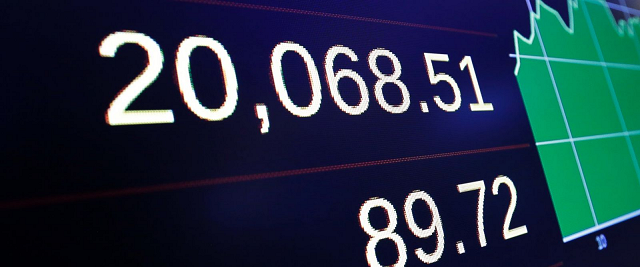How the Dow’s Rise to 20,000 Has Impacted Investor Behavior

As the Dow has marched to 20,000, investors appear to have become more and more excited about the mega-cap index.
Some $4 billion have flowed into the SPDR ETF tracking the Dow Jones industrial average (DIA) since November. On a percentage basis, that dwarfs what has been added to the much larger SPDR ETF tracking the S&P 500 (SPY).
The surge of money has come as the Dow has widely outperformed the S&P 500 over the past three months. With its larger weighting toward financial and industrial stocks, catalysts such as a Federal Reserve hike, an improving economy and optimism over President Trump's deregulation and infrastructure-building plans have served the Dow better than the S&P.
The Dow outperformance has spurred a "performance chase," according to Derek Sellhausen, a sales trader and analyst on WallachBeth's ETF trading desk. In other words, the Dow's rally has led investors to place bets that it would continue.
"It was leading up to 20K where most of the flows were seen and the buying was done," Sellhausen told CNBC in a Wednesday afternoon interview.
On Wednesday itself, as the Dow Jones industrial average rose above 20K for the first time ever, 4.8 million shares of the SPDR ETF tracking the index (DIA) changed hands. That was a mere 6.5 percent of Tuesday's volume in the similarly priced SPDR S&P 500 ETF (SPY), but on a typical day, the DIA sees just 4.5 percent of the volume that the SPY does. That could be interpreted to mean that investors' relative interest in the Dow as compared to the S&P was a bit higher than normal on Wednesday.
Still, Sellhausen described the impact of the milestone as "muted," noting that "there was nothing really crazy, volume-wise."
For Boris Schlossberg, a macro trader and strategist with BK Asset Management, the Dow's big run cannot continue much longer.
"I think that the trade is, buy near-term, but sell intermediate term, because it's definitely going to run out of juice going forward," Schlossberg said Wednesday on CNBC's "Power Lunch."
Courtesy of CNBC
